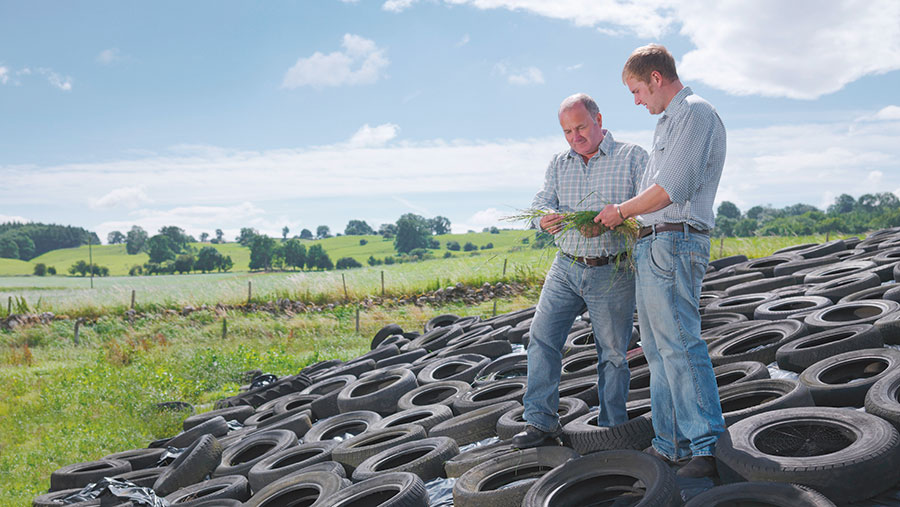Business Clinic: Share farming v contract farming
 © Cultura/REX/Shutterstock
© Cultura/REX/Shutterstock Whether you have a legal, tax, insurance, management or land issue, Farmers Weekly’s Business Clinic experts can help.
Here, Georgina Sweeting of Savills advises on the pros and cons of share and contract farming agreements for a farmer who wants to take as step back and offer a newcomer the chance to farm.
Q I run a 182-ha arable and sheep farm with 300 ewes and am a sole trader with no successor.
I am coming up to retirement and looking at ways to continue farming while taking a step back.
I would like to help get someone started in farming through a share farming or contract farming agreement. What should I be considering?
 Georgina Sweeting
Georgina SweetingFood and farming graduate, Savills
A Share and contract farming agreements (CFAs) are used to continue farming for lifestyle and tax reasons while taking a step back from the physical aspects.
Both would suit your situation and can be flexible in terms of capital investment.
Both parties should be willing and able to work together to form a successful business relationship.
A written agreement should clearly set out roles and responsibilities.
Share farming
Two parties share input costs and revenue while running separate businesses.
Typically, the owner provides the land, buildings, fixed equipment, major maintenance and expertise while the operator provides labour, machinery, energy costs and part of the working capital.
See also: How much to rent a cattle building?
Each party pays for inputs and receives income reflecting their agreed shares. There are no guaranteed payments and no joint bank account
The production risk and reward is spilt between the two parties, with the owner retaining full tenure and possession, enabling agricultural property relief (APR) from inheritance tax to be maintained.
The operator is able to enter the industry with little capital while learning from the farmer’s knowledge and experience.
There is the opportunity for them to build up their share through re-investing profit; typically this will be detailed in the agreement.
For example, at the outset you may own 75% of the flock and the operator 25%. This type of structure allows energy and ambition from the “sharer” to be combined with knowledge and expertise from the farmer.
Establishing share farming arrangements tends to be more complicated than CFAs as there is no set bank account to make and receive payments; two sets of invoices/receipts will have to be processed.
There is potential for a greater risk to both parties as there is no guaranteed income. The agreement must consider factors such as soil structure, land drainage and buildings – the operator may be unwilling to input significantly into this if there is no clear advantage to them.
Contract farming
Contract farming is a joint venture whereby the farmer provides land and buildings and the contractor provides labour, machinery and power.
A bank account should be set up by the farmer, paying for the inputs and receiving all income. This creates the margin and keeps the agreement separate from the current sole trading operation.
The contractor receives a basic fee throughout the year, with the farmer taking a basic return at the year end. Any surplus margin as calculated in accordance with the agreement is then divided between the two parties.
CFAs suit farmers looking to reduce capital tied up in machinery or cut down physical involvement in the farm. The contractor benefits from economies of scale and receives a guaranteed fee per acre.
The farmer continues to claim BPS and retains full possession and tenure. The contractor can own all or part of the breeding stock and hire them back to the agreement, giving the potential to build up the herd while allowing you to further release capital.
To retain APR, day-to-day decision making must be with the farmer and not the contractor.
Responsibility for cross-compliance and any stewardship agreements remains with the farmer, so the contractor will have to be made aware, and potentially carry indemnity for, any potential breaches.
Arable CFAs may be harder for newer entrants to take on because of the capital requirement for machinery, but in livestock situations they can be a good option.
The agreement should carefully detail who will be providing which elements of the farming enterprise.
Do you have a question for the panel?
 Outline your legal, tax, finance, insurance or farm management question in no more than 350 words and Farmers Weekly will put it to a member of the panel. Please give as much information as possible.
Outline your legal, tax, finance, insurance or farm management question in no more than 350 words and Farmers Weekly will put it to a member of the panel. Please give as much information as possible.
Send your enquiry to Business Clinic, Farmers Weekly, RBI, Quadrant House, The Quadrant, Sutton, Surrey SM2 5AS.
You can also email your question to fwbusinessclinic@rbi.co.uk.
